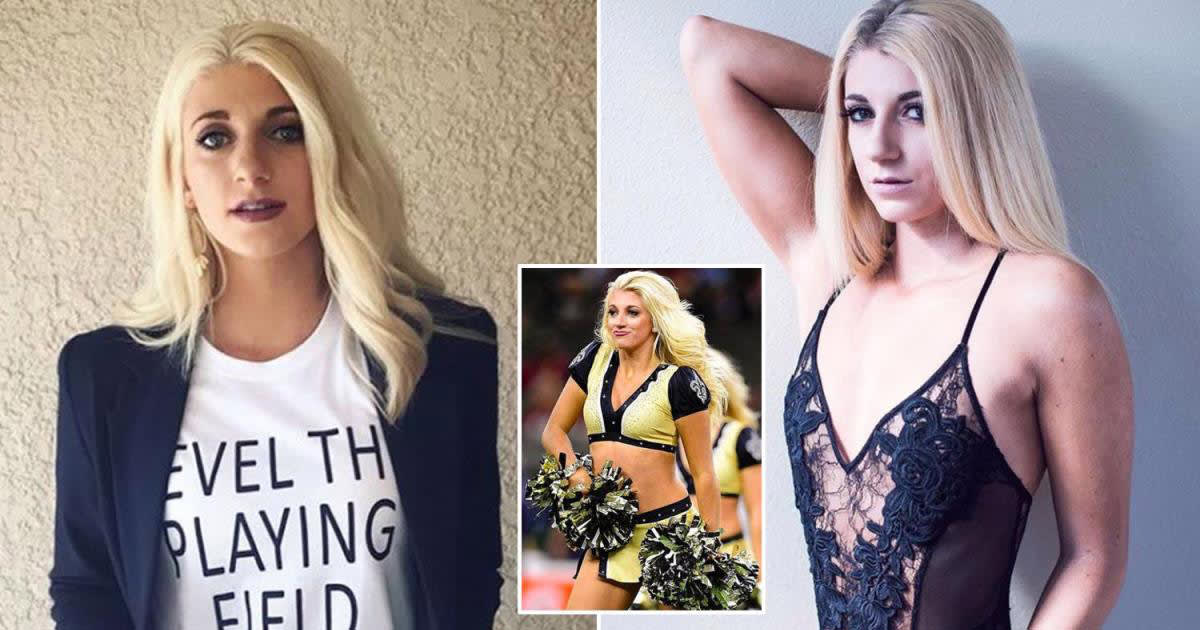How an Instagram post led to this NFL cheerleader’s firing (and why it's total BS)

The sports world hasn’t been the main focus of the #MeToo movement, but The New York Times’ recent story about former New Orleans Saints cheerleader Bailey Davis shows that the industry has its own issues with the sexualization of women. It also shows that objectifying women doesn’t always mean harassing or hitting on them. Efforts to protect women from any and all potentially sexual encounters sexualize them just as much.
In case you haven’t kept up with the case, here’s what happened: Davis worked as a cheerleader for the football team The New Orleans Saints, also known as a Saintsation. The team’s rules require Saintsations to keep their social media accounts private, block NFL players from following them, refrain from posting photos of themselves in Saints gear, eschew events where NFL players might be unless approved, and leave unapproved events if NFL players arrive.
Post is gone 😬After posting a photo of herself in a one-piece outfit to her private Instagram and being accused of attending a party where an NFL player was present, Davis was fired. She’s since filed a complaint with the Equal Employment Opportunity Commission on the grounds that the team’s rules applied to the cheerleaders (who are all female) but not the football players (who are all male).
“The team says its rules are designed to protect cheerleaders from players preying on them,” according to The New York Times. But by trying to “protect” the cheerleaders from being sexualized, these rules are actually sexualizing them. They’re assuming that cheerleaders will automatically be objectified just by hanging out with athletes or being seen on social media.
Furthermore, rules like The Saints’ teach cheerleaders that if they get harassed or assaulted by football players, it’s their fault. Rather than teaching men to treat women with respect, women are being forced to accommodate men’s disrespectful behavior, even when it limits their own freedom.
If we teach women to keep men off their social media pages and out of their lives, how will we ever teach men to enter women’s lives, both online and offline, respectfully?
Policies like The Saints’ are insulting to men as well as women. They imply that after merely being at the same event as a woman or seeing a photo of one, men will be unable to control their sexual urges. This belief that men are inherently criminals perpetuates rape culture — because if predatory behavior is innate, then there’s not much you can do about it.
Similar arguments have been made about school dress codes that are disproportionately strict on girls. School administrations often say that these will protect the girls from being sexualized. But this assumes that boys can’t help but sexualize them — and that, once again, that’s the girl’s problem.
Instead of holding women responsible for not getting preyed on, we need to challenge the notion that men are predators and women are prey. We need to hold men to a higher standard and punish them for behaving like predators. And we need to stop assuming every sexualized interaction that occurs will even be between men and women — or that these are the only two genders.
Women will not be free until they can be treated as equals no matter where they go or what they post online — when they can be sexual without being sexualized.
As Davis’s lawyer Sara Blackwell told The New York Times, “If the cheerleaders can’t contact the players, then the players shouldn’t be able to contact the cheerleaders. The antiquated stereotype of women needing to hide for their own protection is not permitted in America and certainly not in the workplace.”



